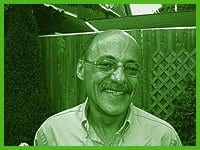For Ottawa activist Denis LeBlanc, recognition for his 30 years of community involvement might seem long overdue.
But as one of the most respected gay activists in Canada, LeBlanc will be inducted into the Canadian Lesbian and Gay Archive’s National Portrait Gallery at Ottawa’s Saw Gallery this fall.
LeBlanc is one of 10 people who will be inducted, along with Christine Bearchell, Richard Charles Bebout, Bernard Rene Courte, Harold Desmarais, David Kelley, Peter Millard, Gerry Rogers, Tim Stevenson and Barbara Thornborrow.
Marie Robertson, member of the National Portrait Committee and coordinator of the 2003 induction ceremony, says, “This nomination was long overdue.
“I think Denis is one of the most amazing gay men in the country and he has given more then most,” says Robertson. “He was there from the beginning. Denis was basically a born an activist. The whole country owes him an incredible debt.”
When LeBlanc describe his accomplishments though, he is more likely to speak of what “we” have accomplished as a community than what he has accomplished as an individual.
LeBlanc himself has come a long way and his life mirrors the movement he has played such a key role in. A founding member of the Coalition for Lesbian and Gay Rights in Ontario, LeBlanc was also a leading force at Gays of Ottawa for many years. He became the first openly gay candidate for Ottawa City Council in 1985, defeated by only 36 votes, and helped steer Egale Canada through a difficult transition, establishing a formal mandate and structure, as president from 1992 to 1994. Out since 1971 and HIV-positive since at least 1988, LeBlanc has also been an important example for others.
“I was very lucky in the sense that I grew up in a minority community,” says LeBlanc, an Acadian who grew up in Moncton.
“I knew what it was to be in a minority community, to have to struggle for one’s rights.”
Although he recognized his homosexuality at a young age, LeBlanc couldn’t come out until he “escaped” to the University of Waterloo. There he found a supportive lesbian and gay community and a new focus for his activism.
“Once I came out I didn’t pay much attention to school,” LeBlanc explains. “I really needed to catch up on lost time and I basically just focussed on gay stuff. I just did everything.”
In 1972, LeBlanc brought this energy and activism to Ottawa. Gays of Ottawa became his main focus. He was active on virtually every committee, served on the Board of Directors for 10 years, as vice-president in 1973 and president in 1975. Meanwhile, he found time to earn a living.
The National Portrait Gallery exists to recognize people like LeBlanc who have contributed to the growth of an out and proud community. The Gallery currently contains 55 original portraits of prominent lesbians and gays. It was established in 1998 as part of the Canadian Lesbian and Gay Archives to celebrate its 25th anniversary.
The Archive, based in Toronto, actually began in 1971 to preserve records from The Body Politic and material from gay groups elsewhere. The Archive’s mandate is “to acquire, preserve, organize and give public access to information and materials in any medium, by and about lesbians and gays, primarily produced in or concerning Canada.” It is run entirely by volunteers.
Harold Averill, a professional archivist for the University of Toronto and volunteer archivist at CLGA, summarizes the Archive’s importance, noting that in many cases lesbian and gay historical material simply isn’t collected.
“If we in the lesbian and gay community don’t preserve our own history, no one else will do it for us.”
NATIONAL PORTRAIT GALLERY.
Sat, Nov 22, 2pm
SAW Gallery
67 Nicholas St
236-6181

 Why you can trust Xtra
Why you can trust Xtra


